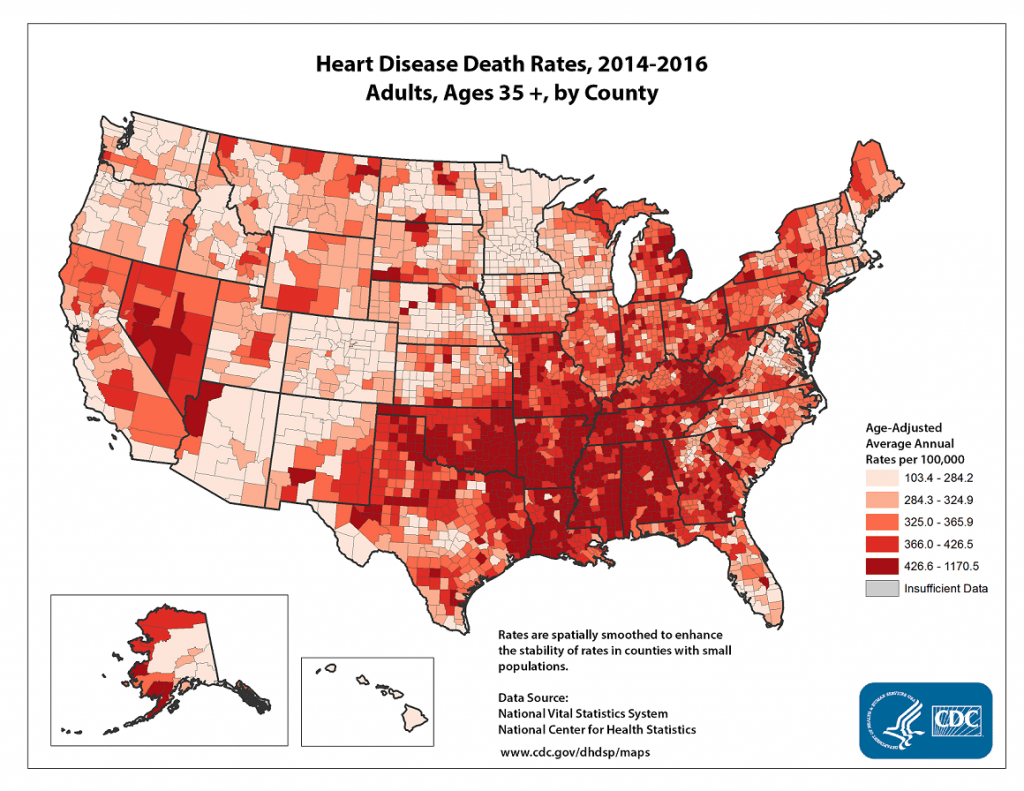When is the “right time”? How can hospice help my quality of life? These questions are very common in the hospice industry. Today, one of the most common diagnoses in the hospice industry is heart disease. According to the CDC website, heart disease is the leading cause of death for men, women, and people of most racial and ethnic groups in the United States. High blood pressure, high blood cholesterol, and smoking are the key risk factors that contribute to these diseases. Other types or symptoms of heart disease include:
Types of Heart Disease
- Coronary artery disease (CAD) (most common, main cause of heart attack)
- Heart failure, or Congested Heart Failure (CHF)
- Stroke, or cerebrovascular accident (CVA)
- Peripheral Artery Disease
Symptoms
- Heart attack, or also called myocardial infarction
- Edema
- Aneurysm
- Shortness of breath, pain or discomfort from both arms or shoulders
- Feeling weak or light headed, may break into cold sweat
Generally, a person with one or more heart-related diseases will being to experience symptoms that can progressively get worse, or become chronic. For example, when a person reaches end-stage heart failure, even tasks of movement around the home may become difficult, making it hard to breathe. He/She may experience edema (or swelling of the extremities) that cannot be remedied by medication. Others may experience intense chest pain that may, at times, become frightening and heighten anxiety for all those around the afflicted. But unfortunately, in many cases, patients and families wait to contact hospice care services because they are not sure if the time is right, or if the patient qualifies for the benefit.
When is the right time to call hospice?
If you are questioning when to call hospice, then it is most likely the right time. Generally, a person with one or more heart-related diseases will being to experience symptoms that can progressively get worse, or become chronic. For example, when a person reaches end-stage heart failure, even tasks of movement around the home may become difficult, making it hard to breathe. He/She may experience edema (or swelling of the extremities) that cannot be remedied by medication. Others may experience intense chest pain that may, at times, become frightening and heighten anxiety for all those around the afflicted. But unfortunately, in many cases, patients and families wait to contact hospice care services because they are not sure if the time is right, or if the patient qualifies for the benefit. It is important to know as soon as symptoms begin to get worse, contact your local Grane Hospice to get the answers you and your family need.
The Grane Hospice staff, consisting of highly-trained interdisciplinary teams of doctors, nurses, nursing aides, social workers, and spiritual care professionals, will work together with the patient and family members to form an individualized plan of care. Their objective is to help remedy symptoms and provide improved quality of life during end of life stages. They will visit you in your home, assisted living, or skilled nursing facility to provide pain, anxiety, and symptom management. Also, the Grane Hospice team values the opinions of the patient and their loved ones, working closely with them to provide physical, mental and emotional support through this difficult time.
Have Questions?
For more information on heart disease and to get questions answered on appropriateness for hospice benefits, contact your local Grane Hospice office to schedule a consultation.




